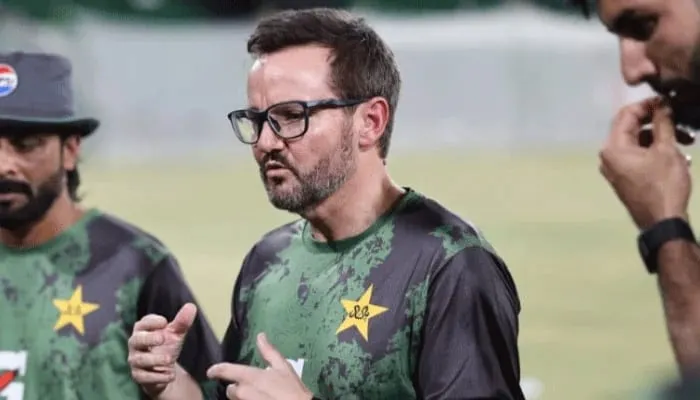
Pakistan head coach Mike Hesson has expressed clear disappointment after India refused to shake hands following their Asia Cup 2025 Group A match. The customary post-match gesture, seen as a simple show of sportsmanship, was skipped by the Indian team, prompting criticism and a pointed reaction from Pakistan’s side.
Hesson said that Pakistan were ready to partake in the usual handshake tradition, but India’s players had already made their way back to the changing room by the time Pakistan approached. He described the moment as “disappointing,” saying that while the match result was tough for his team, the lack of mutual respect at the end weighed more than the scoreline.
The incident came immediately after India wrapped up a seven-wicket win over Pakistan, chasing down 128 with ample overs to spare. According to Hesson, the Indian players, including captain Suryakumar Yadav, did not shake hands at the toss either, a sign of how charged emotions were from the very start. Hesson indicated that Pakistan captain Salman Ali Agha skipped the post-match presentation ceremony in part because of India’s refusal to engage in the handshake tradition.
From the Indian side, captain Suryakumar Yadav has said the decision was deliberate and aligned with the direction of the BCCI and government. Yadav dedicated the win to the victims of the April Pahalgam terror attack and the Indian armed forces, stating that some things are “ahead of sportsmanship” given recent events. He and coach Gautam Gambhir both echoed the view that the team’s conduct reflected national sentiment.
Observers see the no-handshake incident as more than just a lapse in ritual—it has been interpreted by many as a symbolic gesture reflecting current political tensions between the two countries. While some praised India’s decision as one of respect for victims, others criticized it as undermining the spirit of cricket, saying sport is meant to act as a bridge, even in difficult circumstances.
For Pakistan, the moment has added insult to injury following a heavy loss. The players were reportedly disappointed not just by their performance, but also by what they saw as India denying them even this small token of sportsmanship. Hesson’s frustration appears rooted in the belief that on-field contests should not be clouded by off-field animosity.
The broader implications may affect future India-Pakistan fixtures. When political or social tensions seep into sport, responses like these become symbolic markers—ceremonies, handshakes, tributes. Hesson’s comments underscore that for many in Pakistan, these actions are still meaningful, not merely formalities.
Ultimately, the “no handshake” row has become one of the defining talking points of this match. While India view their approach as aligned with national sentiments and directives, Pakistan see it as a missed opportunity for sportsmanship. The controversy shows how when India and Pakistan meet on the cricket field, even the smallest gestures are heavily scrutinized and loaded with meaning.
12BET Shortlisted for Sportsbook Operator of the Year at SBC Awards 2025

